Play Winning Positional Strategy
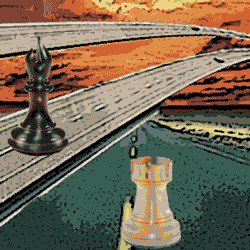
Where does good positional strategy fit into your overall chess game plan? It's probably good to think of it as the frame or skeleton of your game.
Playing a good positional game will not on it's own sweep aside foe after foe. It is nonetheless, the foundation of a game that can bring you the desired results. The bells and whistles can be added later but you must first create a solid base to work from.
Endgames can be calculated with endgame table bases and openings can be learned from opening databases. But the middlegame is a little more mysterious. How should you start improving this area of your game? First you must learn to play a positional game.
Develop Your Minor Pieces Optimally
































































Positional Strategy - The White Knight sits on a nice outpost and the Black Bishop controls the long diagonal which may eventually open up
our Bishops and your Knights will be the first officers to wade into battle. It isn't enough to simply move them wherever. They must be placed on the correct square according to the opening you are playing. You should also factor in your opponent's development.
Knights generally belong on advanced outposts. This is a square protected by your pawn where no enemy pawn can drive him away. It's always nice if your pawn is itself getting support as the head of a pawn chain. Even better if a Rook is controlling the file on which the Knight sits.
Bishops like to gain control of key diagonals, either the long diagonal or a diagonal close to it. They can also sit on an outpost but they are not as effective there as a Knight.
Bring Your Rooks to the Center
































































Positional Strategy - White gets his Rooks to the d and e-files where they can exert pressure down those central files
Your minor pieces have been developed to their best possible square and you have completed castling. Now it's time to think about where to put the heavy pieces.
The Queen should go to a deep position, 3rd rank max but quite often the 2nd. Somewhere where she is safe, she can provide support for defensive points and she can spring into attack at any moment.
The Queen should go to a deep position, 3rd rank max but quite often the 2nd. Somewhere where she is safe, she can provide support for defensive points and she can spring into attack at any moment.
But what about the Rooks? Well again it depends on the opening and the precise position. Generally they will look for a central file. Or whatever file that is begging to be opened up and exploited.
That's really what the Rooks are looking for in the game. An open file or half-open file that they can take control of. They may even form a battery on that file.
That file can be used directly for an incursion into the enemy camp. If not it can be used to transfer the Rooks via a jump off point to another file where they can invade hostile territory.
That file can be used directly for an incursion into the enemy camp. If not it can be used to transfer the Rooks via a jump off point to another file where they can invade hostile territory.
Plan Schematically and Strategically
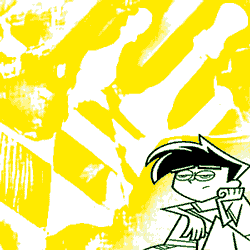
When you move from the opening to the middlegame the safety harness comes off and now it's time to live on your own wits. No step by step manual to steer you through. So how do you choose your moves?
It's time to come up with a plan. Before settling on an objective there are a few things you need to assess. What tasks are your pieces currently fulfilling? You may have a piece that is already doing an important job like defending a comrade. If so you can't have a plan that involves moving that piece. Many game losing errors come about when players undermine their own position by moving such a piece.
You must think about King safety, tactical opportunities, piece activity, pawn structure, controlling open files and establishing outposts. Try to figure out what your opponent's plan is. When you've decided on your own immediate goals and you think you know what your opponent wants to do, devise a plan to achieve your goals and counteract his.
Target Weak Points for Destruction
































































Positional Strategy - Black has a backward pawn that White will target for destruction
You should also keep an eagle eye peeled for weak points in the enemy camp. Backward pawns, isolated pawns and also weak squares that would make a good post for one of your pieces.
If you have forced your opponent to advance a Kingside pawn then you may have a weak complex that you can attack. This is a contiguous group of squares of the same color that are inadequately defended.
If such a complex is in the vicinity of the enemy King you are practically obliged to devise a scheme to attack. Get all your pieces pointed towards that area and overwhelm the defense.
Assess the Statics and Dynamics
































































Positional Strategy - White's advantages are his seventh rank Rook and powerful Bishop pair (dynamic strengths). Black is hampered by his b-pawn (static weakness) which his pieces must defend.
Before each move you must scan for any fresh opportunities to play a tactical combination. Usually both sides will have a number of slight edges in different aspects.
All kinds of imbalances can exist in a position. One player or the other may have an advantage in material, structure, initiative or space. Someone could have a passed pawn or a Bishop pair.
All kinds of imbalances can exist in a position. One player or the other may have an advantage in material, structure, initiative or space. Someone could have a passed pawn or a Bishop pair.
Usually the little imbalances even out the game and it's about who can make best use of their advantages. Figure out whether you have the dynamic advantages (time, initiative) or the static advantages (material, structural).
The player with the dynamic edge should have tactical opportunities. The other player must defend against any possible tactical shots and try to retain his static advantages into the endgame.
Squeeze them Lifeless with Spatial Strategy
































































Positional Strategy - White has gained space on the Kingside. Can he make use of it or will Black capitalize on the weak squares left behind?
You have to compete for space to give your pieces room to breathe. More territory equals more activity. Pushing your pawns at the right time and on the right files will cramp your opponent, giving him fewer useful moves.
If you get a spatial advantage you should do your best to avoid exchanges. You want to populate your annexed territory with active pieces. You also want to stuff his limited room with as many pieces as possible.
They will get in each other's way. It naturally follows that if you find yourself with limited space you should be trying to force exchanges to relieve the pressure.
They will get in each other's way. It naturally follows that if you find yourself with limited space you should be trying to force exchanges to relieve the pressure.
One thing you have to be cautious about when throwing pawns forward is leaving weaknesses in their wake. Once a pawn is advanced it can no longer control squares on adjacent files. These may be used as outposts by your opponent so watch out for that.
Plan Around Your Pawn Structure
































































Positional Strategy - (The Carlsbad Pawn Structure) White will launch a minority attack on the Queenside and Black will get a Kingside attack going in response
The pawn structure that is formed during the opening is going to have a massive impact on how the game is played. Generally you will focus your troops toward the wing where your pawn chain is pointing.
Some openings are known for pawn chains that lock into each other. White's pawn chain will point toward one wing and Black's toward the other. This can make for an exciting middlegame as the two sides attack on opposite wings.
Other openings are a little different. Both sides will advance their pawns on the same wing. In these cases the two armies head for a direct collision as they meet head on, on the same wing.
Seize the Initiative and Attack

What is the initiative? It's simply possession of immediate pressure against your opponent's King or some other critical target. When you have your foot on his throat you have the initiative. As long as you can make threats with each move that he must parry you are retaining the initiative.
The initiative in the middlegame is often temporary in nature. You may sacrifice a piece to get a material advantage in the sector of the board around the enemy King.
If you do this then you better make that advantage decisive quickly. Because if he survives the attack your opponent will be up a piece and your temporary advantage will be gone. So the golden rule with the initiative is use it or lose it.
Factor Chess Development into Your Plan
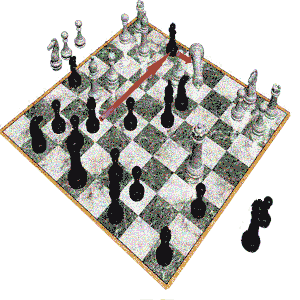
You develop your pieces according to the kind of middlegame you want to play. If you're the kind of player who likes violent, open games you can play to open the game by trading central pawns.
If you're more of a positional strategist you may prefer to play a closed game with enemy pawn chains locking into each other. There will be no open files in these middlegames as both players maneuver with their pieces behind the pawns. You and your opponent will both look to be ready to take control of the portal into enemy territory when a gap is finally ripped open.
The nature of the middlegame will also be influenced by whether the Kings have been castled on the same side or on opposite wings. If they are castled on opposite wings, get ready for the fireworks!
The Value of Chess Analysis
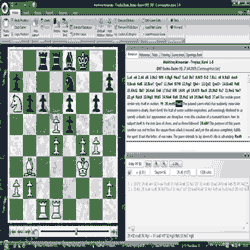
Chess analysis is a must in your overall efforts to improve your chess. You should analyze every game you play as soon as you can. You can iron out your mistakes by finding out where you went wrong.
Look for a stronger move than the moves you played in the game, especially at critical junctures. Chess engines are invaluable for this task. Doing this over an extended period of time will help you identify and eliminate bad habits in your game.
Use databases to find grandmaster games with the same positions and see how the great players treated the same positions. This gives you an insight into their philosophies on the game. If the games are annotated it will change the way you think about the game and how you approach chess in general.
Moving On
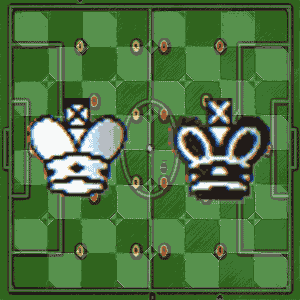
Gaining proficiency in positional strategy is an important first step to improving middlegame play. Think of a new coach coming into a team and getting the fundamentals right first.
The first thing he does is sort out the defense and the team's discipline. He makes sure they're doing all the little things right. Then his charges are solid and hard to beat. But the team is not the finished article.
Now the team must go to the next level. They must sharpen the attack. They have to be able to inflict damage as well. Because a great team does not just defend well. It can also attack. All great chess players know how to attack. They eat, sleep and breathe chess tactics.

